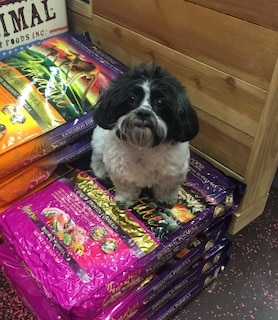While it is often irresistible to ignore your pets’ big brown eyes as you chew down your favorite dish, always remember, giving your pet people’s food may be doing more harm than good to your dogs’ health. Ensure that your children and caregiver also understand that some foods, especially those containing sweetener xylitol, can cause real harm. At best, stop feeding your dog with foods you are not sure of to keep your canine friend safe.
Human Safe Vs. Dog Friendly
A significant difference exists between human and dog metabolism. They have a different metabolic process, responsible for digestion and absorption of broken-down foods. This scare calls for scrutiny of the foods constituent ingredients to it the is 100% dog-friendly. With this in mind, not all human foods are downright lethal to your dog; however, some common foods, such as avocado, will surprise you. Additionally, if you are mixing foods. Here is a breakdown of the common ingredients you must eliminate to guarantee safe doggie diets. Here we go!
Xylitol
Most people may be wondering what xylitol means. It is a natural ingredient, a sugar substitute, found in everyday foods such as lettuce, berries, mushrooms, and other oats and foods containing corn. Although it is common, it is not safe for the canine kingdom, and you should avoid feeding your dog with its extracts. This sugar alcohol that was discovered centuries ago has found its way into many other extracts. It exhibits a low glycemic index, and hence its popularity in tooth decay preventive functions. Besides, commercial production has accelerated its extraction from corn fiber and other materials like birch trees. That said, be sure you will find traces of xylitol in daily consumables such as cough syrups, toothpaste, sugar-free chewable, typical candies, and the mints you carry around.
Why xylitol is popular
Considering its low glycemic index and consequent preventive functions, be sure to find it in most low carb diets in your home. Moreover, it is recommended as a sugar substitute in most products, mainly due to its sweetness: it contains sucrose content at appropriate levels recommended for diabetic people.
Dangers of Xylitol
While it is safe for people, it is dangerous for dogs. In fact, even in small amounts, xylitol can trigger life-threatening side effects such as hypoglycemia, dangerous seizures, gradual liver failure, or even instant death, depending on severity.
Other Foods to Avoid
Always remember that xylitol is not the only component in your fridge that cause harm to your dog. The following foods are also unsafe for canine consumption, and you should avoid then the dog’s diet:
Avocado
It contains a chemical component known as persin. If your dog ingests it, it may exhibit signs such as diarrhea and vomiting.
Grapes & Raisins
The common effects of these foods include kidney failure. If you feed your pet with these Grapes and raisins, you expose the dog to harmful diets.
Chocolate, Coffee, Tea & Other Caffeine
Feeding your dog to these foods exposes them to dangerous ingredients such as caffeine and theobromine. These two ingredients can cause mild to severe hyperactivity accompanied by elevated heartbeats. Depending on your dog’s weight and quantity of caffeine, your pet may exhibit vomiting and seizure symptoms, which may lead to death.
The Bottom Line: Keeping Your Dog Safe
It is essential to beware of foods lying around in your house to prevent your dog from accidentally ingesting harmful foods. At Woof Gang Bakery & Dog Grooming Las Vegas, we care about your pet’s health, and so, we refer you to the best pet food brands. We take great pride in keeping those canine friends safe and sound!

